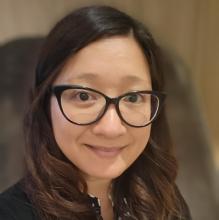Belinda Chi
Why did you decide to pursue a graduate degree?
When I was in the process of completing my master's degree, the positive experience I had with my professors, learning community, and inclusive learning environment, motivated me to pursue a doctoral degree. I had completed my master's quite early into my teaching career, so I wanted to ensure I gained more experience in my profession before pursuing a PhD in Education. Throughout my teaching career in the K-12 education system, I noticed that there was a gap in supports for students with disabilities, transitioning from secondary school to post-secondary life as an adult. My experience as an educator with connections to students, friends, and family with disabilities has led me to pursue a PhD in the Department of Curriculum and Pedagogy at UBC.
Why did you decide to study at UBC?
Being born and raised in Vancouver, I wanted to stay close to my family and friends as I pursued my studies and was grateful to be accepted into the PhD program in EDCP at UBC.
What is it specifically, that your program offers, that attracted you?
I appreciate the flexibility and choice of the Doctoral program in Curriculum Studies. I was drawn to the program as my research aligned with the work of Dr. Leyton Schnellert in the areas of community research and inclusive education.
What was the best surprise about UBC or life in Vancouver?
The best surprise has been meeting people at UBC who have become good friends.
What aspect of your graduate program do you enjoy the most or are looking forward to with the greatest curiosity?
I look forward to expanding my frame of mind and coming to new understandings about life.
What do you see as your biggest challenge(s) in your future career?
The biggest challenge might be helping people understand why the lens of Critical Disabilities Studies is essential to making our world become more inclusive.
What aspects of your life or career before now have best prepared you for your UBC graduate program?
I believe my academic experience of completing my undergraduate degree and master's degree has prepared me for the expectations of being a student in the doctoral program. In addition, my career experience as a K-12 teacher, faculty associate, and sessional instructor has enabled me to grow my capacities both personally and professionally.
What do you like to do for fun or relaxation?
When I have free time, I like to try new baking recipes. I relax by sitting down with a cup of coffee and a journal to write in or a book to read. I also enjoy taking walks, biking, and catching up with family and friends over a good meal.
What advice do you have for new graduate students?
My advice is to be open to conversation, listen, and be willing to expand your thoughts. While we are here to learn, we are also here to unlearn and relearn.
